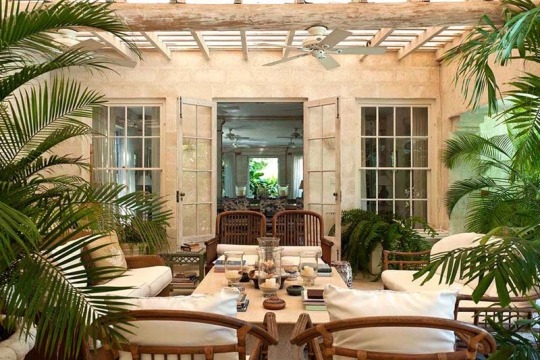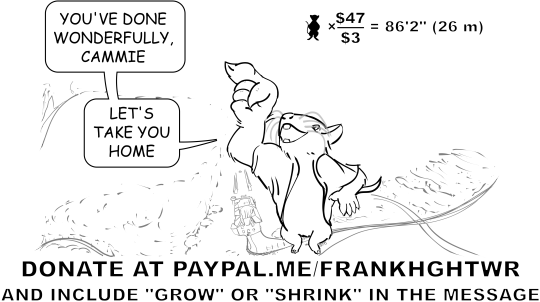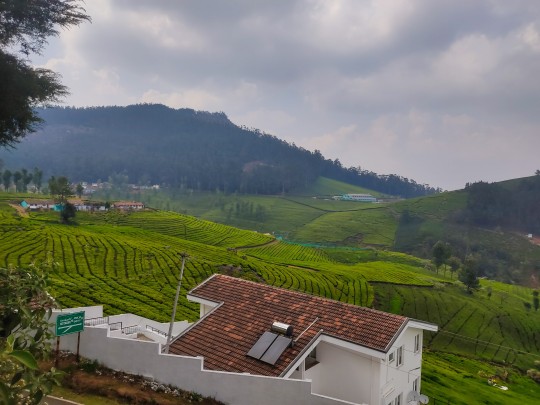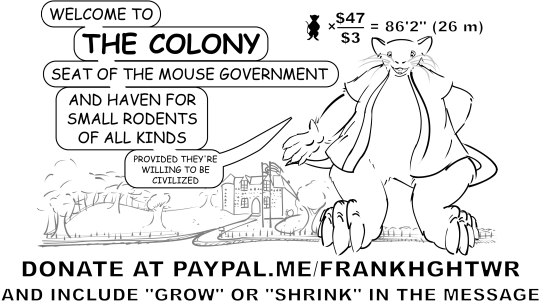#plantation house
Explore tagged Tumblr posts
Text

66 notes
·
View notes
Text


Plantation House matchbook
28 notes
·
View notes
Photo




(via Plantation House Real Estate Market Report June 2023)
Plantation House Condos in Indian River Plantation on Hutchinson Island in Stuart FL Real Estate Market Report for June 2023
#plantation house#indian river plantation#hutchinson island#stuart#florida#real estate#condo#market report
2 notes
·
View notes
Text
Southern wedding at the historic Tanglewood Plantation

View On WordPress
#bokeh#drone#farm wedding#flowers#historic#outdoor reception#outdoor wedding#plantation house#spring#sunset#wedding#wedding dress
0 notes
Photo

2024 Size Drive 25: Offering a perch
Possibly the last attempt at the "helicopter perspective" of this run. I dare say it's getting better If the bridge looks different here, that's because it's not the one we crossed before. There's three waterways between The Colony and the human city. Yes, those things behind the colony are the old stables. They, of course, have been given a different purpose now.
Posted using PostyBirb
0 notes
Text
a house is a home but a house is alive but a house is a prison but a house is a graveyard but a house is a caregiver but a house is an emancipation but a house is a monster but the house loves you and the house will not let you go
#guys I haven't even read house of leaves i just have thoughts about houses in storytelling#..... the uss hephaestus.... the martin house..... the house of eternal return..... the house on southwood plantation road....#i love haunted houses idk yall#oh miranda's house on new providence island and also the house on hill top road#ace txt
6K notes
·
View notes
Text
In 1833, Parliament finally abolished slavery in the British Caribbean, and the taxpayer payout of £20 million in “compensation” [paid by the government to slave owners] built the material, geophysical (railways, mines, factories), and imperial infrastructures of Britain [...]. Slavery and industrialization were tied by the various afterlives of slavery in the form of indentured and carceral labor that continued to enrich new emergent industrial powers [...]. Enslaved “free” African Americans predominately mined coal in the corporate use of black power or the new “industrial slavery,” [...]. The labor of the coffee - the carceral penance of the rock pile, “breaking rocks out here and keeping on the chain gang” (Nina Simone, Work Song, 1966), laying iron on the railroads - is the carceral future mobilized at plantation’s end (or the “nonevent” of emancipation). [...] [T]he racial circumscription of slavery predates and prepares the material ground for Europe and the Americas in terms of both nation and empire building - and continues to sustain it.
Text by: Kathryn Yusoff. "White Utopia/Black Inferno: Life on a Geologic Spike". e-flux Journal Issue #97. February 2019.
---
When the Haitian Revolution erupted [...], slaveholding regimes around the world grew alarmed. In response to a series of slave rebellions in its own sugar colonies, especially in Jamaica, the British Empire formally abolished slavery in the 1830s. [...] Importing indentured labor from Asia emerged as a potential way to maintain the British Empire’s sugar plantation system. In 1838 John Gladstone, father of future prime minister William E. Gladstone, arranged for the shipment of 396 South Asian workers, bound to five years of indentured labor, to his sugar estates in British Guiana. The experiment [...] inaugurated [...] "a new system of [...] [indentured servitude]," which would endure for nearly a century. [...] Desperate to regain power and authority after the war [and abolition of chattel slavery in the US], Louisiana’s wealthiest planters studied and learned from their Caribbean counterparts. [...] Thousands of Chinese workers landed in Louisiana between 1866 and 1870, recruited from the Caribbean, China and California. [...] When Congress debated excluding the Chinese from the United States in 1882, Rep. Horace F. Page of California argued that the United States could not allow the entry of “millions of cooly slaves and serfs.”
Text by: Moon-Ho Jung. "Making sugar, making 'coolies': Chinese laborers toiled alongside Black workers on 19th-century Louisiana plantations". The Conversation. 13 January 2022.
---
The durability and extensibility of plantations [...] have been tracked most especially in the contemporary United States’ prison archipelago and segregated urban areas [...], [including] “skewed life chances, limited access to health [...], premature death, incarceration [...]”. [...] [In labor arrangements there exists] a moral tie that indefinitely indebts the laborers to their master, [...] the main mechanisms reproducing the plantation system long after the abolition of slavery [...]. [G]enealogies of labor management […] have been traced […] linking different features of plantations to later economic enterprises, such as factories […] or diamond mines […] [,] chartered companies, free ports, dependencies, trusteeships [...].
Text by: Irene Peano, Marta Macedo, and Colette Le Petitcorps. "Introduction: Viewing Plantations at the Intersection of Political Ecologies and Multiple Space-Times". Global Plantations in the Modern World: Sovereignties, Ecologies, Afterlives (edited by Petitcrops, Macedo, and Peano). Published 2023.
---
Louis-Napoleon, still serving in the capacity of president of the [French] republic, threw his weight behind […] the exile of criminals as well as political dissidents. “It seems possible to me,” he declared near the end of 1850, “to render the punishment of hard labor more efficient, more moralizing, less expensive […], by using it to advance French colonization.” [...] Slavery had just been abolished in the French Empire [...]. If slavery were at an end, then the crucial question facing the colony was that of finding an alternative source of labor. During the period of the early penal colony we see this search for new slaves, not only in French Guiana, but also throughout [other European] colonies built on the plantation model.
Text by: Peter Redfield. Space in the Tropics: From Convicts to Rockets in French Guiana. 2000.
---
To control the desperate and the jobless, the authorities passed harsh new laws, a legislative program designed to quell disorder and ensure a pliant workforce for the factories. The Riot Act banned public disorder; the Combination Act made trade unions illegal; the Workhouse Act forced the poor to work; the Vagrancy Act turned joblessness into a crime. Eventually, over 220 offences could attract capital punishment - or, indeed, transportation. […] [C]onvict transportation - a system in which prisoners toiled without pay under military discipline - replicated many of the worst cruelties of slavery. […] Middle-class anti-slavery activists expressed little sympathy for Britain’s ragged and desperate, holding […] [them] responsible for their own misery. The men and women of London’s slums weren’t slaves. They were free individuals - and if they chose criminality, […] they brought their punishment on themselves. That was how Phillip [commander of the British First Fleet settlement in Australia] could decry chattel slavery while simultaneously relying on unfree labour from convicts. The experience of John Moseley, one of the eleven people of colour on the First Fleet, illustrates how, in the Australian settlement, a rhetoric of liberty accompanied a new kind of bondage. [Moseley was Black and had been a slave at a plantation in America before escaping to Britain, where he was charged with a crime and shipped to do convict labor in Australia.] […] The eventual commutation of a capital sentence to transportation meant that armed guards marched a black ex-slave, chained once more by the neck and ankles, to the Scarborough, on which he sailed to New South Wales. […] For John Moseley, the “free land” of New South Wales brought only a replication of that captivity he’d endured in Virginia. His experience was not unique. […] [T]hroughout the settlement, the old strode in, disguised as the new. [...] In the context of that widespread enthusiasm [in Australia] for the [American] South (the welcome extended to the Confederate ship Shenandoah in Melbourne in 1865 led one of its officers to conclude “the heart of colonial Britain was in our cause”), Queenslanders dreamed of building a “second Louisiana”. [...] The men did not merely adopt a lifestyle associated with New World slavery. They also relied on its techniques and its personnel. [...] Hope, for instance, acquired his sugar plants from the old slaver Thomas Scott. He hired supervisors from Jamaica and Barbados, looking for those with experience driving plantation slaves. [...] The Royal Navy’s Commander George Palmer described Lewin’s vessels as “fitted up precisely like an African slaver [...]".
Text by: Jeff Sparrow. “Friday essay: a slave state - how blackbirding in colonial Australia created a legacy of racism.” The Conversation. 4 August 2022.
#abolition#tidalectics#multispecies#ecology#intimacies of four continents#ecologies#confinement mobility borders escape etc#homeless housing precarity etc#plantation afterlives#archipelagic thinking#geographic imaginaries#kathryn yusoff#katherine mckittrick#sylvia wynter
211 notes
·
View notes
Text
It's all, "The Targaryens are colonizers," until you point out that they left Valyria and assimilated into the local power structure, whereas the Andals still live in a very particular type of feudal societal structure that does not occur 'organically' and in fact is the result of a collapsed previously-centralized imperial power structure which in this case is also a settler-colonial power structure that was fueled by their version of Manifest Destiny and enabled through genocide of the remaining Children and the imposition of their self-described "universal" culture, power structure, and faith-system upon the pre-existing population. All of which resulting in a particular kind of power structure enabled by and deeply connected to that history that, I repeat, they still live according to. In which case the Targaryens, having distinguished themselves from the imperial power structure that they left, divested from, and took measures to prevent from rising again, and having proceeded to embrace change and adaptivity (to the point of assimilation) are actually less colonial than the culture they assimilate into.
And then it's still, "The Targaryens are colonizers." Because these people don't understand or even really care about colonialism. It's just another word for "foreigner I don't like."
#feudalism isn't “normal” you guys#european feudalism is the legacy of imperialism#you would not believe how deeply linked it often is to slave plantations#or maybe you would if you're educated#asoiaf#house targaryen#targaryens as colonizers#stop using “colonizer” as a stand-in for “foreigner I don't like” and as a way to mask xenophobic sentiments because I SEE YOU
131 notes
·
View notes
Text

Recent Acquisition - Photograph Collection
Westend, near Trevilians, Virginia
59 notes
·
View notes
Text

Nilgiris
#phone photography#nature lovers#lensblr#india#nature#nature photography#beautiful places#aesthetic#original photographers#photographers on tumblr#architecture#house#naturecore#nature blog#natureblr#original photography#my photography#photography blog#photography#nilgiris#mountain life#mountains#mountain landscape#landscape#hills#beautiful#travel journal#travel#explore#tea plantation
63 notes
·
View notes
Text







#ai generated#ai image#ai photography#stable diffusion#landscape#trees#plantation#farming#toscana#italy#sunny#wine#houses#ancient houses#old house#hills#grassy#meadows#meadow
7 notes
·
View notes
Text
People will ask "why did lestat buy the Fairplay for louis? Does show!Louis not have his own money" as if 1: either Tom Anderson or the other one would sell it to him outright (they literally gave him horrific terms for a business deal in ep 1 because they wanted to take him down a peg) or 2: Lestat doesnt explicitly love spending money on Louis and what he wants
#louis has his own money he just want yo money#like i want us to remember. louis inherented a plantation. he sent his sister around europe all first class paid as a wedding gift#and didn't even blink! treated it like a stand mixer or some shit like#louis is rich. he drives a drop top car as a black man in 1910#he regularly hangs out with the richest people in the city and he pays bills on his house and his mama house and his kid!!#he got it like that#the only thing keeping him from doing what he wants is racism catholic guilt and being an eldest child in a conservative black household#iwtv#interview with the vampire#louis de pointe du lac#ldpdl#loustat#iwtv 2022#amc iwtv#even outside of louis having his own money lestat in canon loves spoiling louis and buys him whatever!#lestat literally says he can't say no to him in ep 2 like he love that man#lestats love language is balling out
37 notes
·
View notes
Text





















$495,000/4 br/4444 sq ft
Blue Springs, MO
built in 1971
#feel like we're looking at crime scene photos#count the carpeted bathrooms#the taste is accurate for someone who wanted a plantation house#1970s#1971
173 notes
·
View notes
Text




Cameron Highlands, Malaysia (2) (3) (4) by Renaud Forest
8 notes
·
View notes
Text
watching s1 of interview with the vampire and I have so many thoughts on the racial dynamics of the household and the themes of the southern gothic present in it like!!!
#not as explicitly southern gothic as the novel from what ive got so far but still#but cmon#new orleans as this liminal space between the south and the north the plantation the racism the “haunted” house and fucked up family dynamic#tennessee williams would've eaten this up and asked for more#sorry currently doing a streetcar for english lit rn and the brainrot has gotten to me#rambles#interview with the vampire
2 notes
·
View notes
Photo

2024 Size Drive 23: The Colony
Before anyone complains about colonialism, a "colony" is what you call a group of mice. A group of rats is called a "mischief", but that didn't lend them much credibility with the humans, it really was better to let the mice speak for everybody here. Another looming perspective without guidelines. I'm getting better at it (I hope) The forest you see bordering the property is known in-universe as the "Forbidden Forest" ...because hunting is strictly prohibited (today, we'd call it a National Park)
Posted using PostyBirb
0 notes